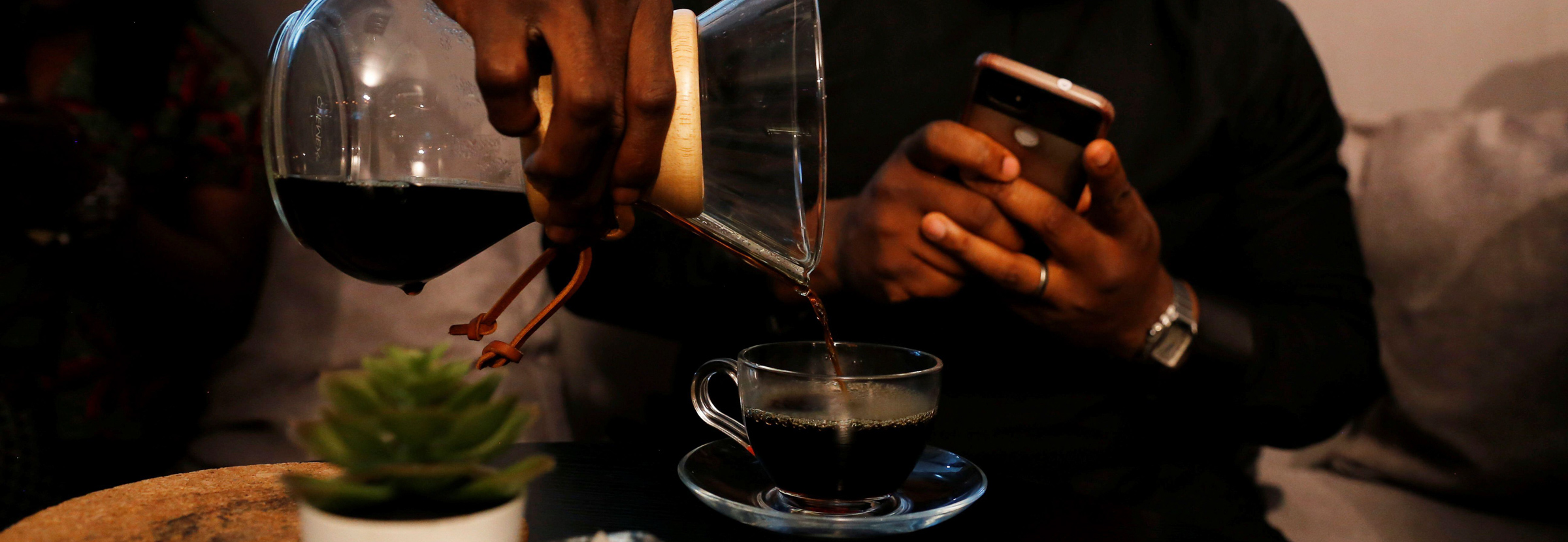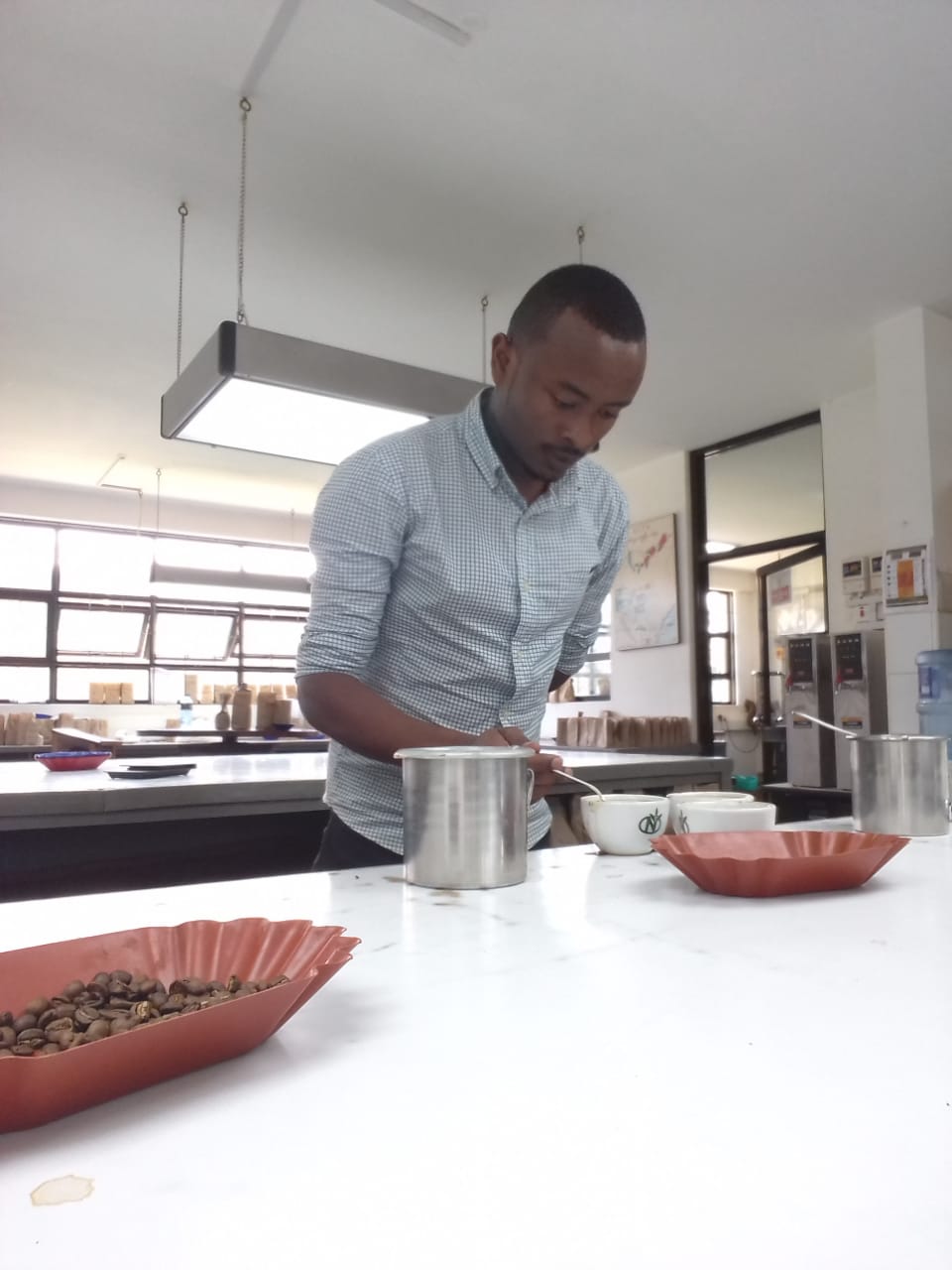How is coffee consumption changing in Nigeria?
For the most part, Nigeria is predominantly a tea and cocoa-drinking country. It’s estimated that these two categories will account for around 40% of Nigerian consumers’ spending across all non-alcoholic drinks by 2023.
Furthermore, while instant coffee products are readily available in the country, overall coffee consumption remains relatively low. It’s estimated that Nigerian consumers drank around 1,000 tonnes of coffee in 2020, which, while a low figure, does represent a 23% increase on the previous year.
So with the rise in coffee consumption, can we say that Nigerian coffee culture is evolving? Will it scale in the future? And can we expect changes?
I spoke with two local coffee professionals to find out. Read on to learn more about what they had to say about Nigeria’s coffee culture.
You might also like our article exploring the Nigerian coffee sector.
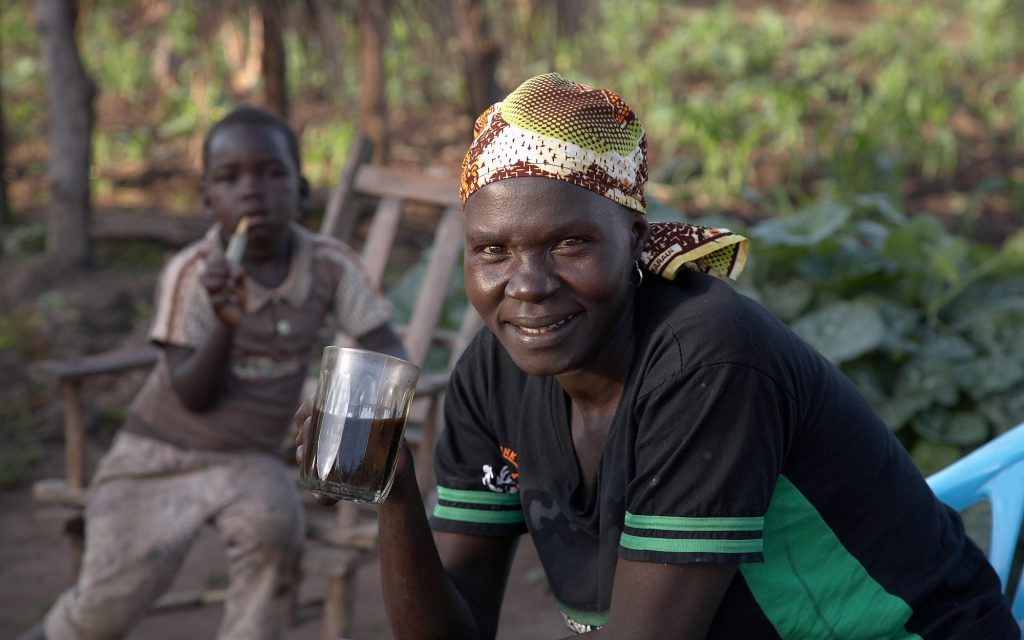
Coffee culture in Nigeria
Like many other countries in Africa, Nigeria is largely a nation of tea drinkers – despite its once-heavy reliance on coffee as a cash crop.
Coffee was first introduced to the country in the late 19th century and exports began soon after that. By the 1930s, the Nigerian government started to promote coffee cultivation by providing farmers with arabica and robusta seedlings.
Coffee production peaked in the country in the late 1960s, mid-1980s, and even saw another peak as recently as 2006, with some 89,000 60kg bags produced. Since then, however, production volumes have dropped by more than 50%.
Sofia Gambino is the founder and owner of Vintage Café in Abuja, Nigeria.
Sofia tells me that the Nigerian government’s focus on increasing oil exports for economic growth is almost solely responsible for the decline of the country’s coffee industry.
“Farmers moved away from cocoa, coffee, and tea production and focused on the oil industry [as it was much more profitable for them],” she says. “We have to revive the coffee industry in Nigeria.”
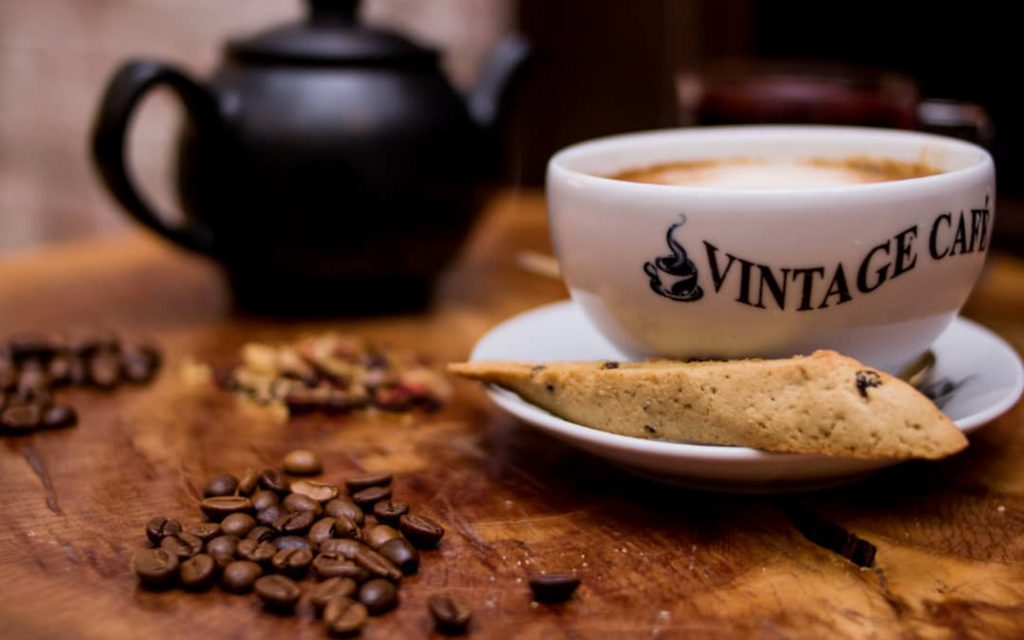
An overview of coffee culture in Nigeria
Instant products currently dominate the Nigerian coffee market. Industry analysts estimate that about 75% of Nigerian coffee consumers drink Nescafé instant coffee. This is often bought from roadside kiosks, which sell Nescafé in larger cities and towns across the country.
Princess Adeyinka is the founder of Happy Coffee in Nigeria.
She tells me that most consumers in the country drink coffee at home or at work, rather than on the go. She also notes that coffee shop culture in Nigeria is still in its early stages.
“It’s still developing,” she says. “Most coffee companies in the country are trying to help Nigerians [know more about quality coffee].
“We are trying to create our own unique coffee shop culture,” she adds.
Sofia says that marketing is essential to encourage more people to drink coffee, as well as improving coffee quality.
“If your coffee is high-quality, you need to focus on marketing so that people can recognise your brand,” she explains. “What’s more, if you sell consistently good coffee, people will drink it.
“We have women-led coffee businesses in Nigeria, like Happy Coffee which works with local farmers, and is looking to revive the coffee sector,” she adds.
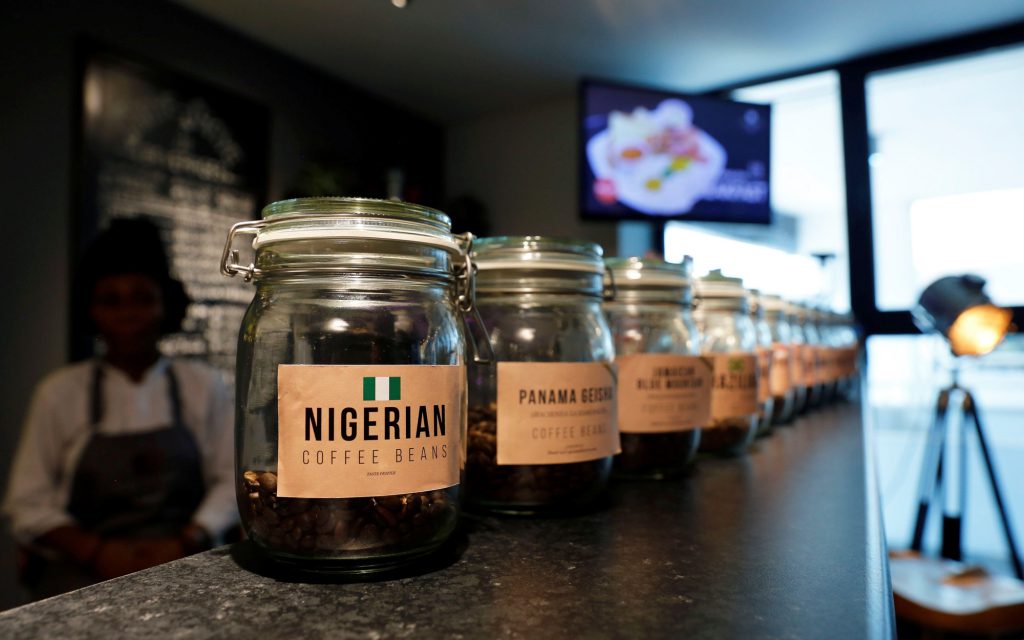
Moving beyond instant coffee
Besides instant coffee, there are also a growing number of international roasters offering roast & ground coffee in Nigeria. These include European household names such as Lavazza and illycaffè.
“People in Nigeria associate Italy with high-quality espresso machines, brew methods, and roast profiles,” Sophia says.
She adds that there is also a focus on developing the market for local coffee shops and roasters.
Sofia works with the Nigerian Export Promotion Commission to waive fees for small and medium enterprises (SMEs) in the coffee sector so that they have easier access to the market.
“We are working with the commission to implement a two-year fee waiver for SMEs to help them establish their business before being charged fees,” she explains.
However, one interesting development is a focus on domestic consumption of Nigerian coffee. For some coffee businesses in the country, Princess says, this is becoming more prominent.
“Nigeria has some high-quality coffee beans,” she says. “Between 90% and 95% of coffee consumed in the country is imported, so by sourcing locally, we can promote both local production and local consumption.”
As part of this, some coffee shops in Nigeria are establishing their own coffee farms with support from the government – including Vintage Café.
“Our coffee farm is in Taraba state because of its high altitude,” Sofia says. “There are also tea farms in this region.”
Currently, arabica is grown in only two states in the country: Cross River and Taraba. Arabica production remains relatively low, as robusta makes up most of the coffee grown in the country.
Sofia says Vintage Café will start off growing 300ha of coffee plants and plans to produce high-quality coffee within the next three to four years. The company works with female producers and supports them through education and welfare initiatives.
“For now, we’re working with smallholder producers to understand the quality and yields they are capable of producing,” she tells me. “This way, we can control coffee quality and [help to improve it].”
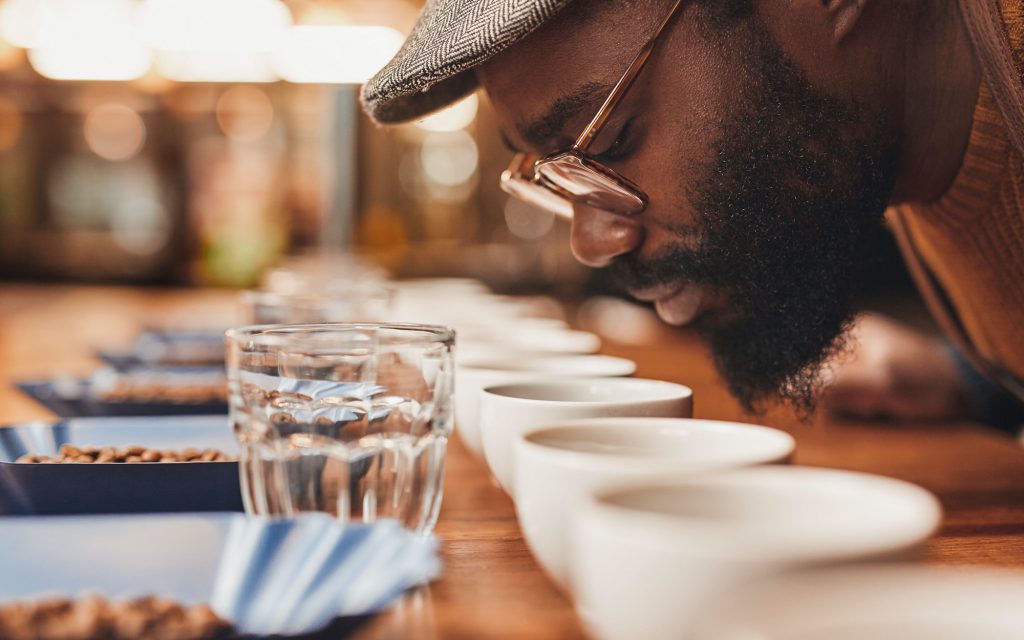
Promoting Nigerian coffee culture
In a bid to develop coffee culture in Nigeria, Sofia helped to launch the country’s first-ever barista championship in June 2021. She says the aim of the event is to give young people better access to the World Coffee Championships.
“I want to encourage more youth, as well as anyone interested or curious to learn about coffee, to become a barista,” she adds.
Two years prior to the first edition of the Nigerian Barista Championships, the Lagos Coffee Festival (LaCoFe) took place in the country’s largest city, with the theme of “Coffee, Culture, and Community”. Princess is the founder of the event.
“The LaCoFe is about bringing together the whole coffee value chain: producers, consumers, roasters, traders, the government, and policymakers,” she explains.
Sadly, the festival hasn’t been held since 2019 because of the Covid-19 pandemic. However, there are plans to host another event soon, and Sofia says she hopes this will feature barista champions, traders, producers, and coffee equipment manufacturers from around the world.
“We want to grow coffee culture in Nigeria and bring the coffee industry back to life,” Sofia adds. “We want to encourage farmers to grow more coffee, provide more educational opportunities for roasters, and encourage youth to work on and understand more about espresso machines.
“The possibilities are endless, and we hope this event will plant a seed that will grow into so much more,” she adds.
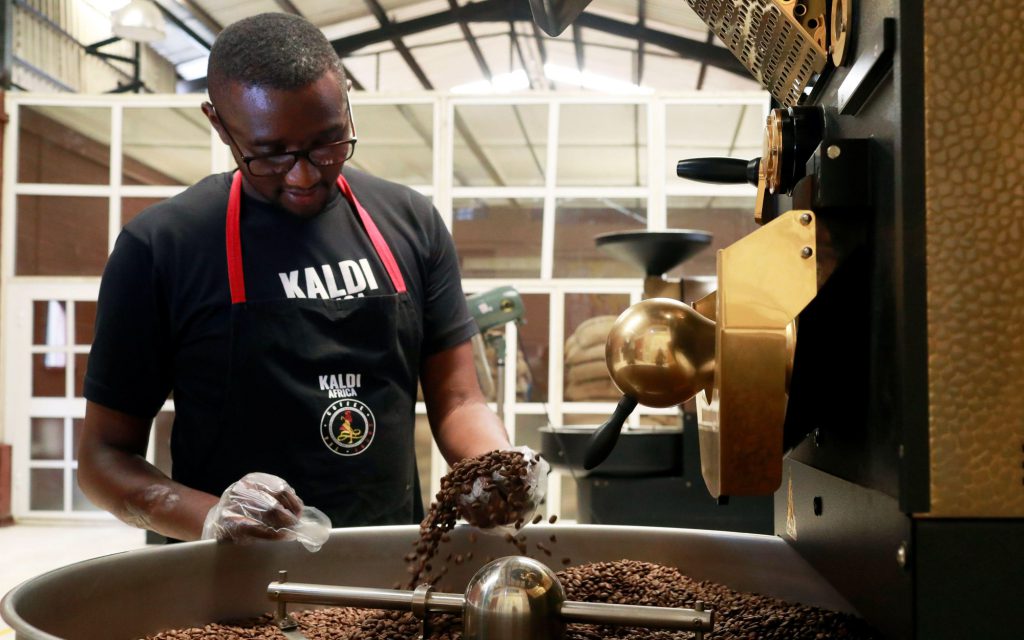
Looking to the future
Princess believes that local media plays a huge role in promoting more domestic coffee consumption.
“Media is part of coffee culture,” she says. “[Local and national publications] are aware of the events and how we are trying to shape coffee culture in Nigeria.”
But ultimately, she says it is up to coffee professionals to teach others how to brew and drink coffee in a number of different ways.
Some coffee shops in the country are starting to offer a wider range of coffee products to encourage more consumption. When doing so, Princess highlights how it’s important to offer products that align with Nigerian culture so that consumers will be more interested.
Sofia agrees, saying that building a base of knowledge on high-quality coffee needs to start at the producer level.
“Farmers need to know more about their coffee,” she explains. “They should be proud of their product and be at the forefront of promoting it, mainly by being coffee drinkers themselves.
“Nigerian producers need to know more about the flavours and aromas in their coffee,” she concludes.
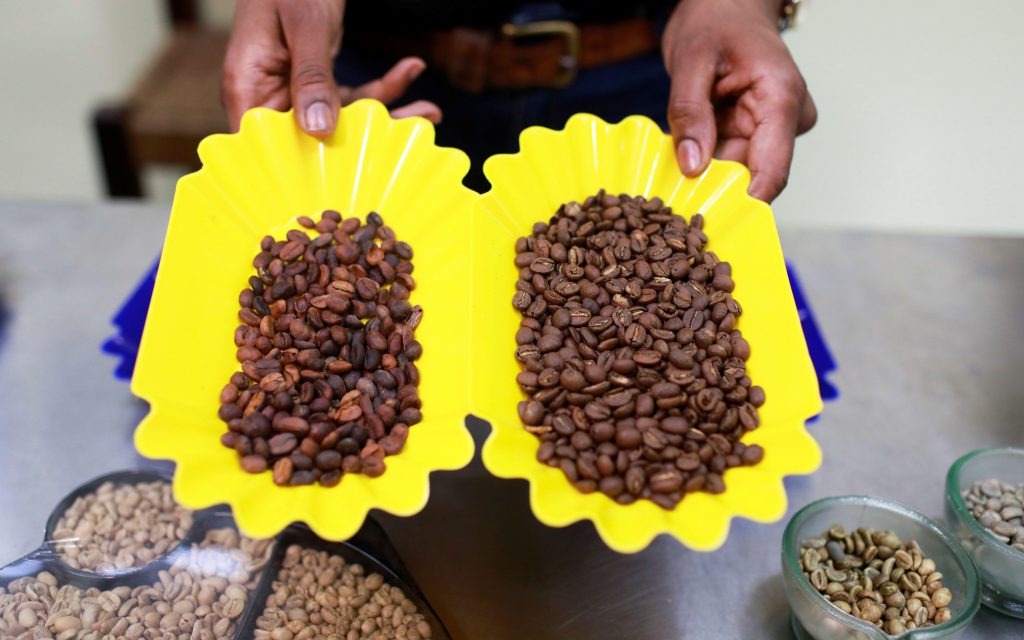
Although low-quality instant coffee continues to dominate the market in Nigeria, there is certainly hope that the country’s coffee culture will develop in the years to come.
However, this means stakeholders in the coffee industry will need to work closely with the government if the market is to grow sustainably.
Many local coffee companies are already helping to change perceptions about coffee consumption with notable levels of success. And if more coffee events are to take place in Nigeria, consumption of higher-quality coffee is likely to keep growing.
Enjoyed this? You might also like our article exploring coffee consumption in Kenya.
Photo credits: Vintage Café, Kaldi Coffee, Mai Shayi Coffee
Perfect Daily Grind
Want to read more articles like this? Sign up for our newsletter!

